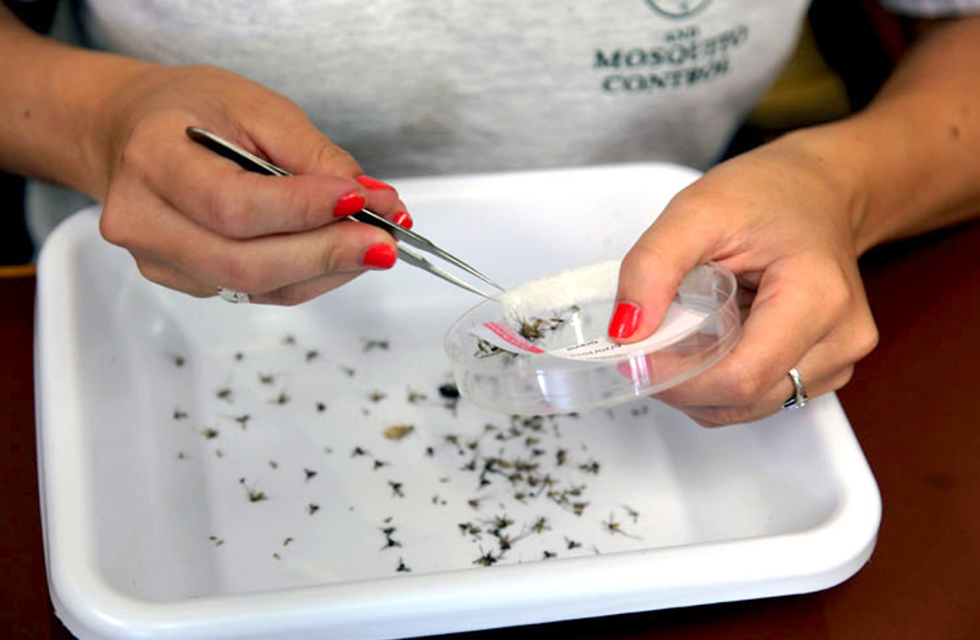Mosquito Testing Underway Across County

Mosquito season is coming up and the Prince William County Mosquito and Forest Pest Management Branch is ready for it.
“We’re getting ready to kick off our big mosquito season, and we’ve been out for three weeks now starting our trapping program. We have about 64 sites that have 150-some traps between them. We process them every week looking for adult mosquitos,” said Branch Chief Eli Hosen.
“We take any potential disease carriers and take them to the George Mason University lab, and that tells us when and where we might need to spray,” Hosen said.
While no viruses have been found in the area yet, field staff from the branch are out every day collecting mosquitoes and testing, primarily looking for West Nile Virus. In addition, field biologists are out inspecting larval breeding sites like stormwater ponds, stream beds, and roadside ditches and applying larvicides wherever mosquito larvae are found.
Branch Assistant Chief Dan Gillespie said county residents can help prevent mosquito problems by removing standing water in flowerpot trays, gutters, ditches or anywhere water gathers. It doesn’t take much standing water for mosquitos to lay eggs.
“That’s the biggest thing we run into. People have their nice clean yards, and they don’t realize that water collecting somewhere is a breeding ground for mosquitos,” Gillespie said. “The Asian Tiger Mosquito only requires a teaspoon to lay eggs in. They can be really good at getting into small obscure places.”
The branch’s wide area larvicide spraying (WALS) equipment will be used to dispense water-based larvicides in areas with hard-to-reach mosquito breeding habitats. The active ingredient in this larvicide is Bti, a naturally occurring bacterium that only impacts aquatic breeding flies. This product is certified organic and is safe for people, pets, plants and bees.
The branch is also keeping tabs on any potential spotted lanternfly, emerald ash borer and spongy moth, also known as gypsy moth, and fall cankerworm populations.
Representatives from the branch go to the Prince William County Dale City and the Manassas Farmer’s Markets once a month to help people with pest management.
“Whenever people are there, they can find us and ask some questions,” Hosen said.
Residents can also visit the branch web page for more information at www.pwcva.gov/mfpm.